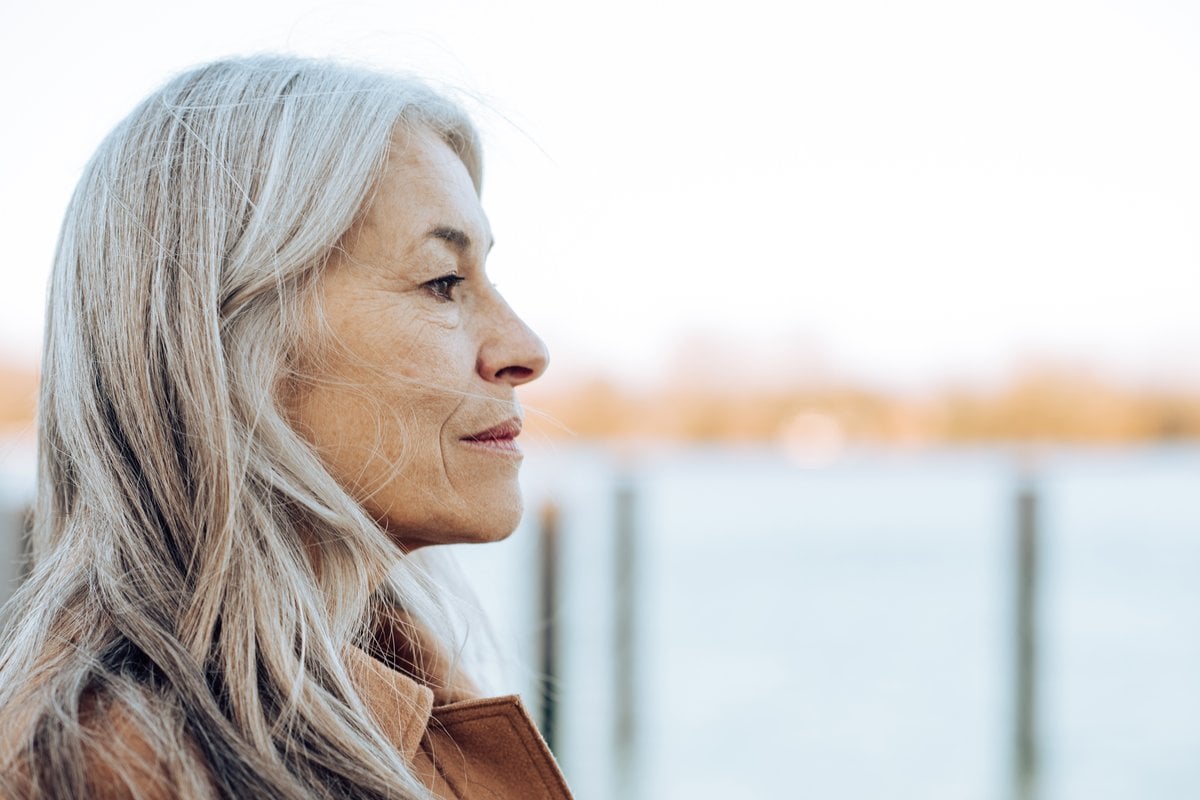
Warning: this post discusses domestic and family violence.
Barbara* and her husband, Pete*, were high-school sweethearts. Peter was Barbara's first love, and an eventual progression to marriage was not only desired, but expected.
It was the seventies, and back then, there was nothing remarkable about marrying the first boy you seriously dated. It was just what you did. "We didn't have many choices, as it all followed a formula," says Barbara.
"But we were comfortable and happy enough I guess. I'm not sure I expected more or had options for anything else back in those days."
Watch: You Can't Ask That - Domestic And Family Violence Survivors Answer, Why Didn't You Just Leave? Article continues after the video.
For many years, their relationship was easy, carefree, normal. At least, that's what Barbara thought at the time. Like all relationships, things became more difficult when children came along. Money was tight, and Barbara directed her love and attention towards her kids.
"We weren't that different to the couples around us."
